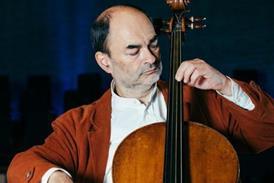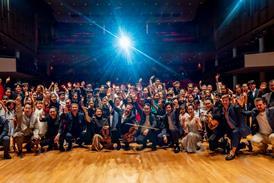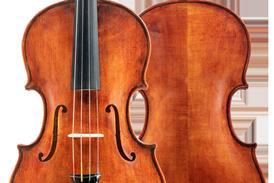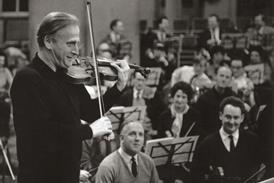In February last year, former Fine Arts Quartet violist Jerry Horner died at the age of 83. Here, his past student James Dickenson shares part of his philosophy of learning, drawing on interviews with Margaret Clements, his widow

The following is an extract from a longer article in our February 2020 issue. To read in full, click here to subscribe and login. The February 2020 digital magazine and print edition are on sale now.
During his lifetime Horner developed a philosophy of teaching, learning, musicality and dedication. Some of his chief convictions as a teacher are outlined here, as recorded by his widow Margaret Clements.
Talent is potential
To Horner, talent was nothing more than potential. He would often say that he felt it was like a ‘monkey on your back’, explaining: ‘Talent can be a blessing or it can be a curse depending on whether or not it’s realised. Another word for talent is potential.’
Although he would frequently say that technique demanded talent, he believed that technical achievements must be accomplished from a foundation of inspiration or idealism. ‘The very first ideal is in the notion of what is a beautiful sound’, he said. ‘Playing must be in the service of that ideal. There are hundreds of little technical things that can keep you from expressing yourself, but if you correct those technical problems, it frees you to express what is inside. Importantly, technique has to ring true for the student, otherwise they cannot maintain it. So that is where this so-called talent comes in.’
The practice environment must be safe and judgement-free
When teaching, Horner was frequently asked by students how to avoid anxiety on stage. He responded: ‘Anxiety is present where there is a fallacy or a hopeless situation. So very often the student will blame themselves – that is where the fallacy exists.’
In lessons he would emphasise to students how important it is to remain free of excessive judgement, reiterating continually that ‘the whole process of learning is a process of making and correcting mistakes. For example, an in-tune note is one kind of information and an out-of-tune note is another kind of information. Both are valuable to me. A mistake, in truth, is a valuable thing.’ He believed we should welcome mistakes as it gives us a chance to repeat the passage again. He stressed: ‘Only repetition of the difficult passage in the practice room, having worked out the technical details, will build security into that passage. When students practise with anxiety – even if the anxiety is about something else altogether – it will inevitably manifest itself on stage. Practising and rehearsing without anxiety, without judgement, and with a state of mind of fascination in the process is the surest way to avoid anxiety on stage.’
This is an extract from a longer article in our February 2020 issue. To read in full, click here to subscribe and login. The February 2020 digital magazine and print edition are on sale now.



































No comments yet